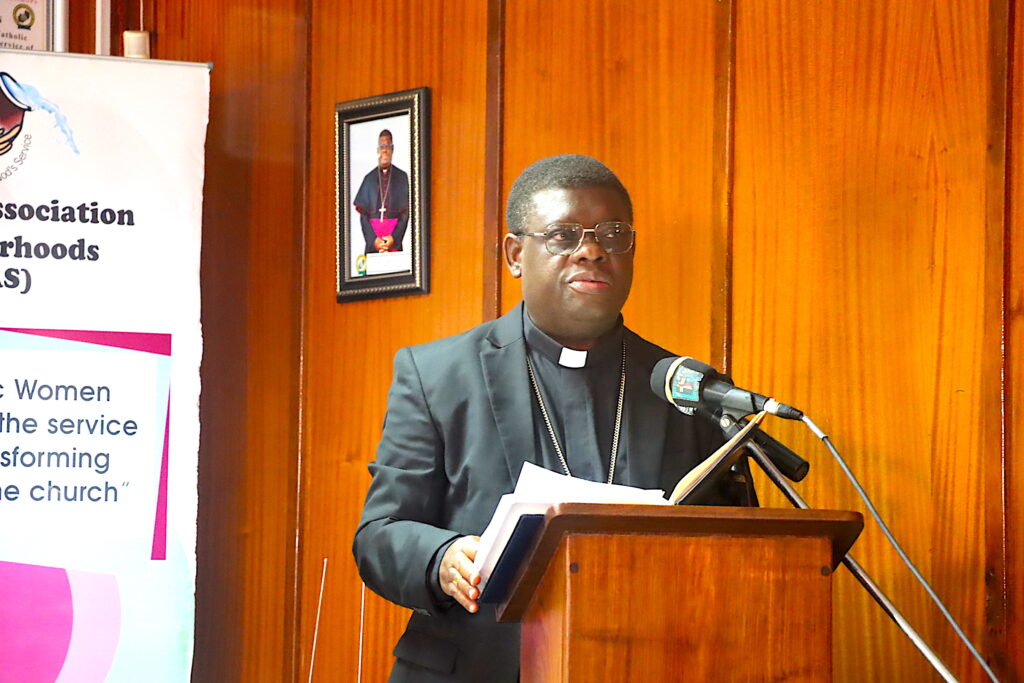AMECEA Calls for Mindful Closure of Child Care Facilities

AMECEA Chairperson, Rt. Rev. Charles Kasonde
By Mwenya Mukuka
In an address at the Association of Member Episcopal Conferences (AMECEA) childcare convention, the AMECEA Chairperson, Rt. Rev. Charles Kasonde, highlighted the critical importance of providing psychological support to children and families amidst the strategic closure of childcare facilities. With these closures taking place, Bishop Kasonde urged to ensure that the objectives behind these actions are achieved without causing any unnecessary disruptions or hardships.
Bishop Kasonde underscored the profound role of the Church in this endeavour, emphasizing its noble task of accompanying children and families during the time of transition. He advocated for a balanced approach that includes both empathy and careful preparation. These two factors, he believes, are pivotal to achieving successful transitions and smooth closures of childcare facilities.
The convergence of AMECEA and the Catholic Care for Children (CCC) in Lusaka from August 28 to 30, 2023, serves as a pertinent reminder of the vital nature of childcare activities and their proper conduct. This gathering provided an opportunity for like-minded individuals and organizations to share experiences and insights, enabling a more cohesive and effective approach to childcare.
Speaking at the convention, Bishop Kasonde stated, “The care that is extended to these children requires a profound sense of sympathy and empathy. Although some may not immediately understand the purpose behind our actions, our duty is to accompany them patiently until they grasp the significance of what we are endeavouring to achieve. This, indeed, is our noble responsibility.”
Sr. Euphrasia Masika, the director of Catholic Care for Children in Uganda (CCCU), echoed these sentiments, describing the Lusaka convention as a platform to fortify collaborative efforts and to discern the evolving needs of the time. With the transition from institutionalized childcare to family-based care gaining momentum, Sr. Masika emphasized that the onus of caring for children is a shared responsibility among the entire community.
Sr. Masika further elaborated, “This shift towards family-centered care enables us to impart the cherished values that our African families hold dear. By fostering an environment where children are nurtured within the fabric of our cultural values, we empower them to become well-rounded individuals who can contribute positively to society.”
The presence of prominent bishops at the AMECEA’s CCCs convention was noted and appreciated by Sr. Masika. Their participation not only underscored the significance of the event but also reinforced the commitment of the church to steer childcare practices towards a more holistic and compassionate approach.
In conclusion, the recent convening of AMECEA and CCC in Lusaka served as a potent reminder of the pivotal role that psychological support and family-centered care play during the closure of childcare facilities. Bishop Kasonde’s call for empathy, patience, and careful preparation resonates as a guiding principle in achieving the objectives of these closures. As communities continue to transition towards family-based care, the collective responsibility of nurturing children and upholding cherished values remains a paramount duty that requires the concerted efforts of individuals, organizations, and the church alike.
Ends //


